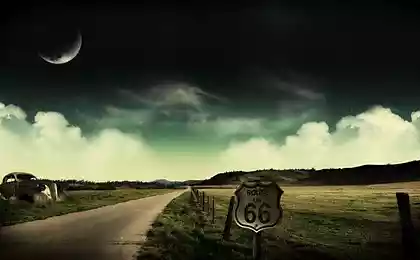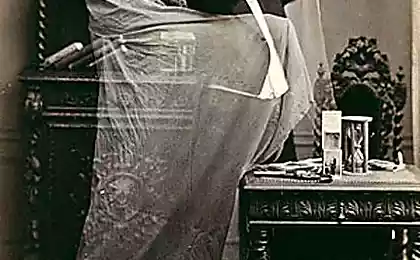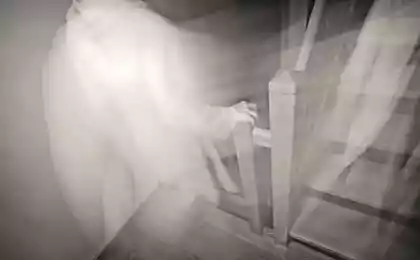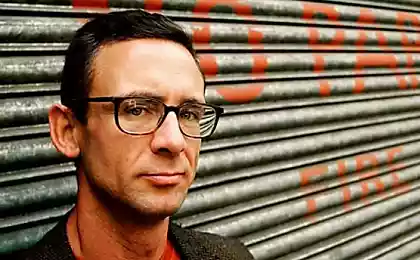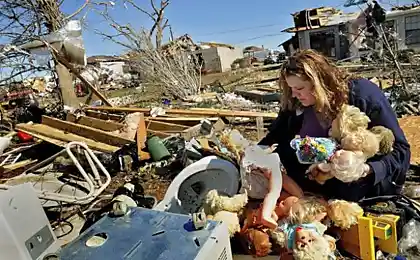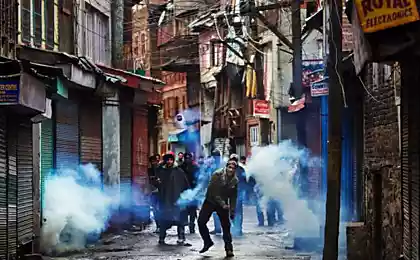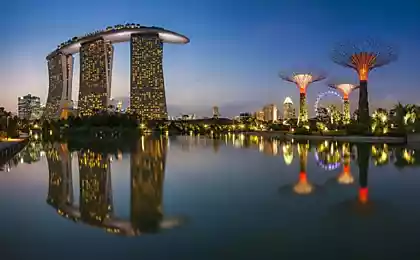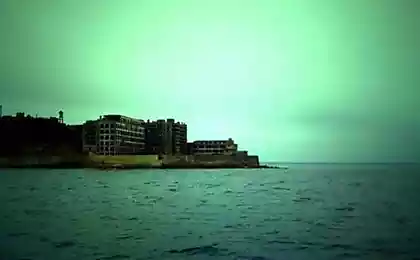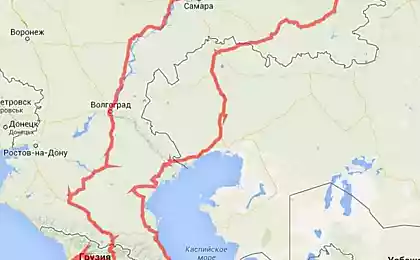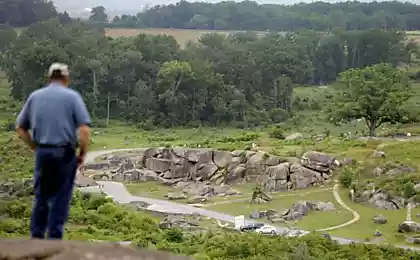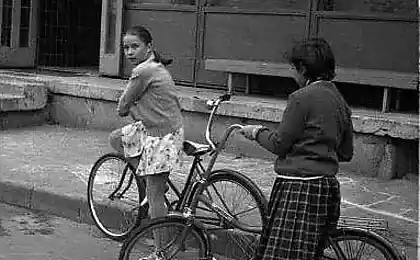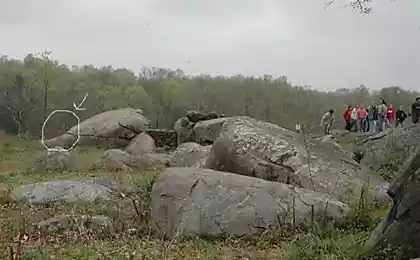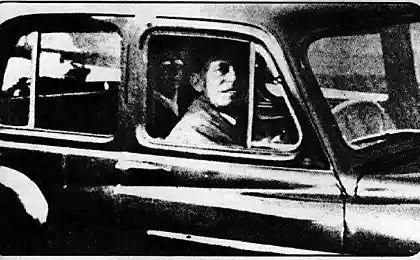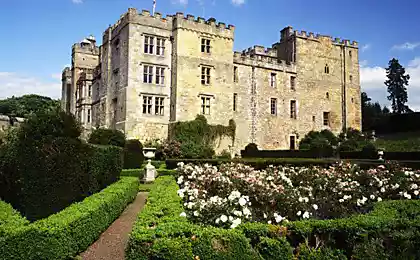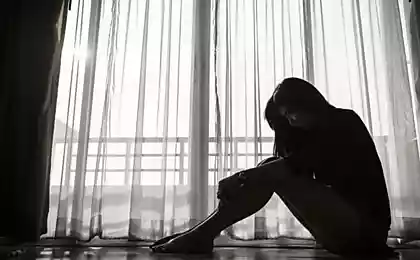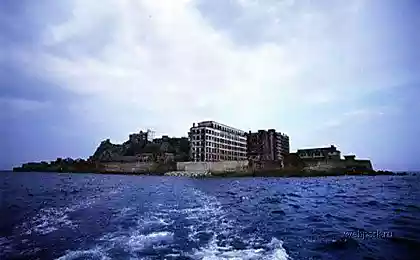1138
Ghost Towns
Compare: This 1974.
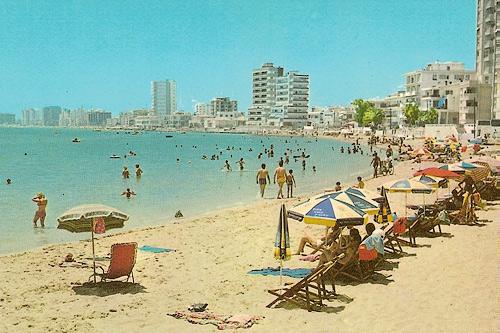
And this is - 2007 th.
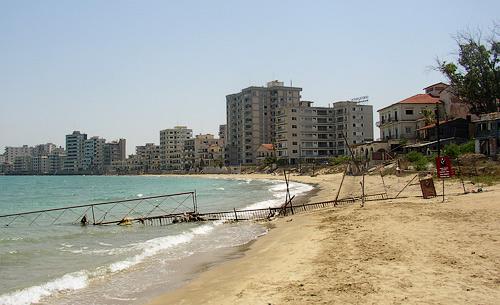
The difference can be seen immediately: the people are gone, the mood, the joy of life was gone. Because life is gone. This is - a dead city. Rather, once the resort suburb of Famagusta - Varosha, surrounded on all sides by miles of barbed wire and mesh netting.
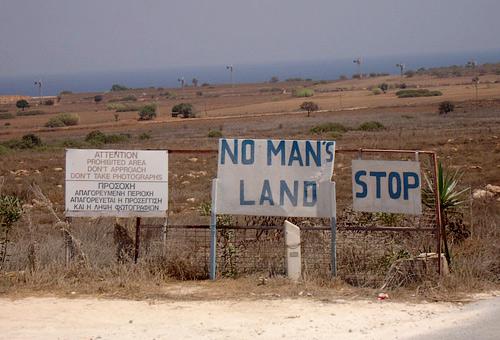
In the early 1970s, Famagusta, a city on the eastern coast of Cyprus, known ancient monuments and sunny weather was for beachgoers from all over the world the same than it is now for "Rousseau tourists" are Turkish or Egyptian Antalya Hurghada. It loved to swim and bask in the rich stars like Elizabeth Taylor and Brigitte Bardot. Inspired by the influx of "money bags" Cypriots, were built on the outskirts of Famagusta, in the quarter of Varosha, dozens of modern high-rise buildings, mostly - five star hotels. Luxury they were booked by the British for 20 years ahead! Resort equip and by 1974 reached a peak of popularity. In the same year on the island, with the blessing of NATO landed part of the Turkish army to protect the Turkish minority from persecution by a military junta led by ethnic Greeks. In the zone of occupation (37% in Cyprus) came and Famagusta. The city is divided into Greek and Turkish parts, as Varosha was the neutral zone, which it was decided to enclose fence and guard against all living things.
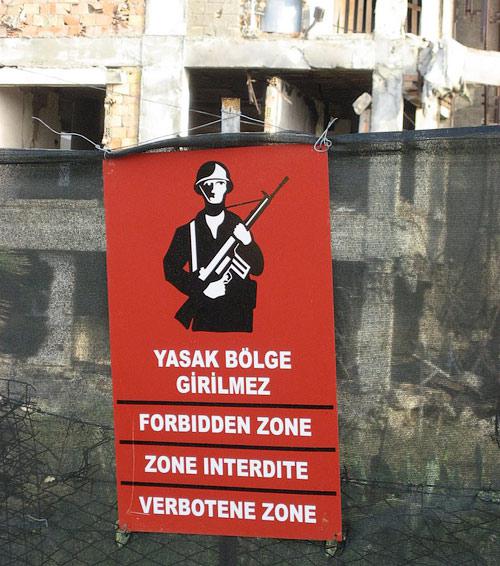
Varosha resettled in military fashion, without ceremony. On the ropes were left to dry linen and beach towels, empty restaurants glowed with thousands of watts, not yet burned out light bulbs. They say that local stores are still hanging in the fashion outfits neprimeryannymi 1974. Leaving the half-eaten breakfast and turn on the TV, 16 thousand local Greeks naively believed in the imminent return. But for 35 years the entrance here only allowed UN representatives and servicemen of Turkish troops who patrol the quarter on a jeep from morning to night, every half hour. In addition, the district is a small Turkish military base, where patrols are sleeping and eating.
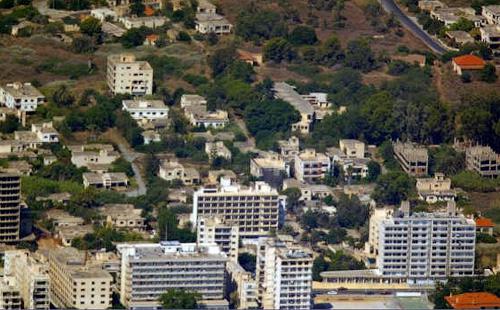
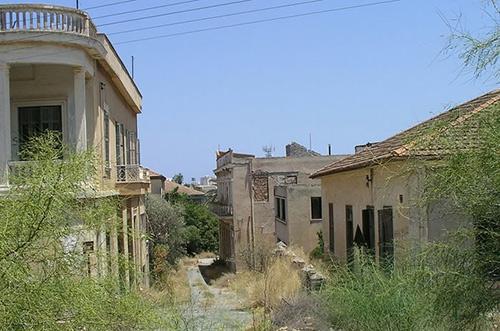
In the days of the death of her great Varosha looters ransacked, primarily Turkish soldiers. They say that many local good was subsequently sold ... at the Istanbul market. Over the years, in an abandoned city and visited a lot of simple stalkers, who drive for the money in the area of curious tourists. Skeletons luxury villas and modest Greek temple at times overgrown with thistle and cactus, among which dart catch stray cats and rats. On the walls there are graffiti hotels periodically. Varosha can not take pictures, but secretly do many, and one has not yet been shot.
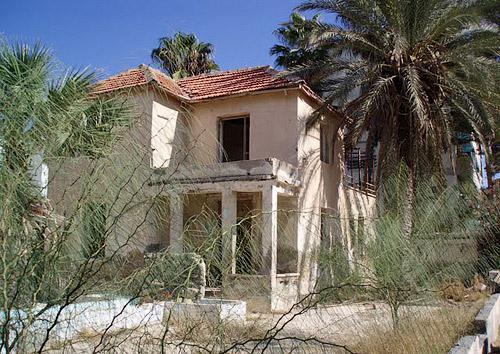
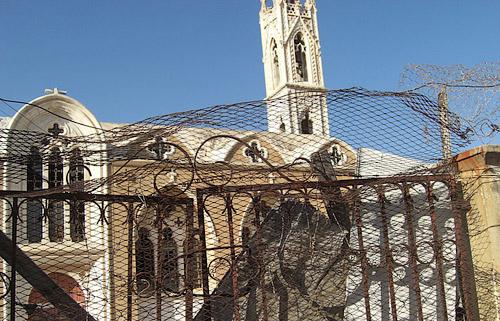
In some places quite easily climb over the fence, and in the fashion once the beach can pass freely, lie down on the couch with a bottle of beer, and even touch his hand to destroy or unfinished hotels. By the way, on the beach with golden sand cleaned daily garbage.
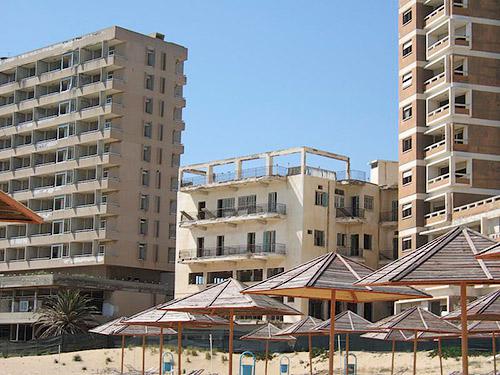
Today, the dead stones Varosha - a stumbling block in relations between Greek and Turkish Cypriots. City put "on the line" from year to year, but every time the conflicting parties do not find the strength to negotiate - for purely "selfish" economic reasons. The Greek community believes that the ghost resort - it's too little in response to the lifting of the embargo on northern Cyprus. The Turks fear that by giving Varosha, they get nothing in return.
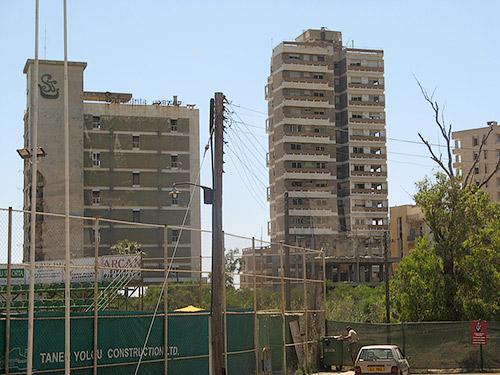
Several years ago, the Cypriot authorities have calculated that the restoration of Varosha could cost 10 billion euros. Experts believe that it is easier and more sensible thing would be to carry a ghost town cleaned, and replace it with a new city-fairy tale, running back the time machine: from the past to the future ...
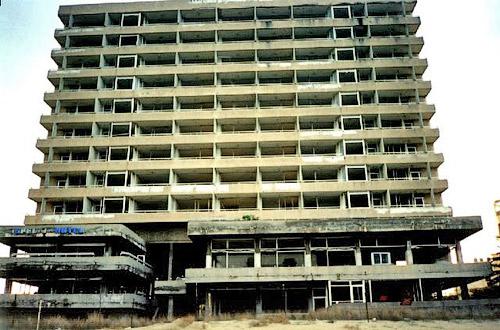
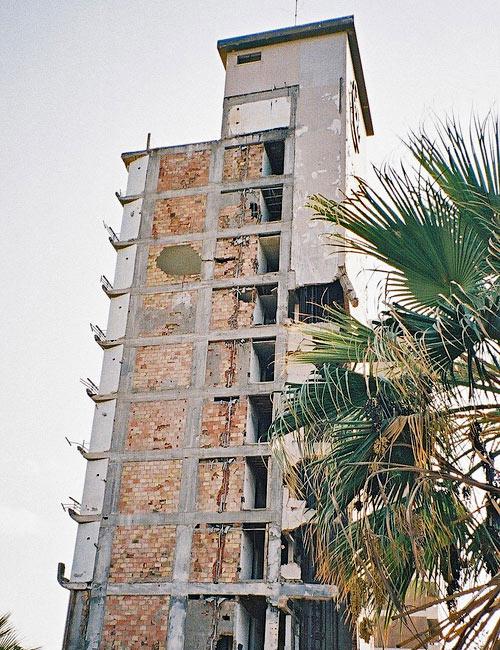

And this is - 2007 th.

The difference can be seen immediately: the people are gone, the mood, the joy of life was gone. Because life is gone. This is - a dead city. Rather, once the resort suburb of Famagusta - Varosha, surrounded on all sides by miles of barbed wire and mesh netting.

In the early 1970s, Famagusta, a city on the eastern coast of Cyprus, known ancient monuments and sunny weather was for beachgoers from all over the world the same than it is now for "Rousseau tourists" are Turkish or Egyptian Antalya Hurghada. It loved to swim and bask in the rich stars like Elizabeth Taylor and Brigitte Bardot. Inspired by the influx of "money bags" Cypriots, were built on the outskirts of Famagusta, in the quarter of Varosha, dozens of modern high-rise buildings, mostly - five star hotels. Luxury they were booked by the British for 20 years ahead! Resort equip and by 1974 reached a peak of popularity. In the same year on the island, with the blessing of NATO landed part of the Turkish army to protect the Turkish minority from persecution by a military junta led by ethnic Greeks. In the zone of occupation (37% in Cyprus) came and Famagusta. The city is divided into Greek and Turkish parts, as Varosha was the neutral zone, which it was decided to enclose fence and guard against all living things.

Varosha resettled in military fashion, without ceremony. On the ropes were left to dry linen and beach towels, empty restaurants glowed with thousands of watts, not yet burned out light bulbs. They say that local stores are still hanging in the fashion outfits neprimeryannymi 1974. Leaving the half-eaten breakfast and turn on the TV, 16 thousand local Greeks naively believed in the imminent return. But for 35 years the entrance here only allowed UN representatives and servicemen of Turkish troops who patrol the quarter on a jeep from morning to night, every half hour. In addition, the district is a small Turkish military base, where patrols are sleeping and eating.


In the days of the death of her great Varosha looters ransacked, primarily Turkish soldiers. They say that many local good was subsequently sold ... at the Istanbul market. Over the years, in an abandoned city and visited a lot of simple stalkers, who drive for the money in the area of curious tourists. Skeletons luxury villas and modest Greek temple at times overgrown with thistle and cactus, among which dart catch stray cats and rats. On the walls there are graffiti hotels periodically. Varosha can not take pictures, but secretly do many, and one has not yet been shot.


In some places quite easily climb over the fence, and in the fashion once the beach can pass freely, lie down on the couch with a bottle of beer, and even touch his hand to destroy or unfinished hotels. By the way, on the beach with golden sand cleaned daily garbage.

Today, the dead stones Varosha - a stumbling block in relations between Greek and Turkish Cypriots. City put "on the line" from year to year, but every time the conflicting parties do not find the strength to negotiate - for purely "selfish" economic reasons. The Greek community believes that the ghost resort - it's too little in response to the lifting of the embargo on northern Cyprus. The Turks fear that by giving Varosha, they get nothing in return.

Several years ago, the Cypriot authorities have calculated that the restoration of Varosha could cost 10 billion euros. Experts believe that it is easier and more sensible thing would be to carry a ghost town cleaned, and replace it with a new city-fairy tale, running back the time machine: from the past to the future ...


